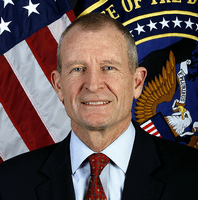
INTEL CHIEF SIGNALS CHANGE — Adm. Dennis Blair, President Obama’s new director of national intelligence, has lost no time living up to his reputation as a hard-driving boss. The intelligence community has been at work since last December compiling the 2009 Annual Threat Assessment, which the new director submitted to Congress Thursday. According to a well-informed source, when Blair arrived to take up his post some days ago, the finished draft was handed to him, but to almost everyone’s consternation he rejected it. Intel officers had to scramble to produce a new version shifting the emphasis from terrorism to the […]
